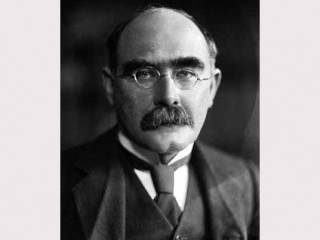
Rudyard Kipling biography
Date of birth : 1865-12-30
Date of death : 1936-01-18
Birthplace : Bombay , India
Nationality : Hindi
Category : Famous Figures
Last modified : 2010-05-27
Credited as : Short story novel author and writer, The Jungle Book, Nobel Prize in Literature
Known as the author of The Jungle Book series and great works such as Kim, Rudyard Kipling climbed the literary ladder of success faster than he ever expected. His prose, timing, and the issues he dealt with led to his winning the Nobel Prize in Literature – the first Englishman to do so. Although criticized for his staunch stance and support of British Imperialism later in his career, he is still remembered as one of England’s finest prose writers who ever lived.
The young Rudyard was born in India, but was taken to England to complete his studies as a young child. He was cared for in a foster home then later attended an inexpensive and lowly boarding school, which he despised for the rest of his life. After graduation, he returned to India and worked as a journalist for nearly a decade. He often wrote verse about native India and the Indian population. His book, Departmental Ditties was his first widely noted publication, followed by the publication of other revered works such as Plain Tales from the Hills, Soldiers Three, and publications including the short stories, “The Man Who Would Be King” and “Baa, Baa, Black Sheep”.
When Kipling returned to England, he was nationally regarded as one of the finest short story and prose writers in the country. His publication, while he was in India, of Barrack-Room Ballads, a poetry collection, won him even more prestige. His fame and rising fortune allowed him to marry Caroline Balestier. The two attempted to live in Vermont, in the United States, but could not cope with the American views about their English way of life.
The two returned to England and purchased a house in Sussex, which was used as their home base for the rest of their lives. Just seven years after the turn of the century, Rudyard Kipling won the Nobel Prize and decided to spend more time in South Africa. After World War I, when the world was thinking about the effects of imperialism on a global scale, Kipling lost some popularity due to his support of anything remotely related to British expansion and at helping the “heathens” of the world. Even though he wrote the autobiography of Rudyard Kipling called Something of Myself, it wasn’t published until after his death in 1937. His later works, although not as popular, are possibly his most significant contributions to English prose and literature.
















